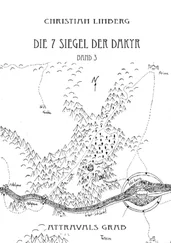He threw Joanna down onto the couch, flung her backward as if she were a piece of luggage he’d thrown into the car at El Dorado Airport.
“Sit,” he said. The way one barks commands at a dog. A stupid, stubborn dog, a dog who should know better.
Paul felt rooted to the couch, a spectator to a horrifying drama that had suddenly and inexplicably become real. He was waiting for the intermission, when he could stretch his legs, shake the cobwebs out of his brain, and thank the cast for their stunningly convincing performance. The play continued.
Galina stood up.
She methodically began closing the wooden shutters on each side of the room as she talked to Pablo in a steady stream of Spanish. As if he and Joanna weren’t even in the room. She seemed to be chastising him—Paul’s Spanish was beginning to come back like a long-repressed memory, and it seemed like he could understand every fifth word or so. You. Called. Not here. For one regrettably stupid moment Paul wondered if she was yelling at Pablo for throwing Joanna down on the couch like that.
For not getting their baby.
For turning on them.
But that was like hoping you’re asleep and dreaming when you’re completely and terrifyingly awake.
Paul handed the baby to Joanna—the baby he’d thought was his daughter and that he now knew wasn’t—and stood up to protest Pablo’s treatment of his wife, to reason this out, to get Joelle and have Pablo take them back to the hotel this instant.
“I told you to sit down, Paul,” Pablo said.
Somehow he delivered this statement over Paul’s prone body. This was an enormous surprise to Paul. That he wasn’t standing. He was lying down on a wooden floor smelling of wet fur and shoe polish. How had that happened? He heard Joanna’s sharp intake of breath.
“I’m okay, honey,” he said. Oddly enough, he didn’t hear the words. His tongue was strangely obstinate; it had decided to lie down on the job. Just like the rest of his body, which felt absurdly heavy. There was a strange metallic taste in his mouth.
He tried to lift himself up from the floor. No go. He felt vibrations traveling through the floorboards, some kind of rebalancing of weight from one place to another. He heard heavy shuffling and sensed a quickening in the air itself.
They looked like marines.
Five men in mottled green uniforms who’d suddenly flowed into the room like a brackish river breaching its banks. Young faces with stolid expressions of dumb determination. Each of them carried a rifle.
“Please,” Paul said.
The room was eerily dark; Galina had closed all the shutters but one. It felt like the moment before everyone yells surprise.
The surprise is for us, Paul thought.
Then he passed out.
ELEVEN
Blackness.
But not completely. There were endless visions and dreams flickering through the blackness. Like being in a movie theater for a very long time.
He was eleven years old and suddenly afraid of the dark. He hadn’t been afraid before, but he was now. Maybe because it was dark at the top of the stairs where his mother had recently taken up residence. Not just dark—a thick, suffocating blackness like a wool blanket pulled up over his head. Your mother’s resting, his father told him. She’s sleeping. Don’t disturb her.
He crept up the stairs, where it smelled unpleasantly medicinal. He listened outside the door and heard the distinct sounds of a TV game show: a buzzer, a voice, phony audience laughter.
His mom wasn’t sleeping, after all. It would be okay to open the door and crawl into her arms. But the darkness inside the room was even gloomier than the darkness outside in the hall. Only the soft glow coming from the portable TV with sadly bent rabbit ears made seeing possible at all.
It took him a while before he could make out the monster lying on the bed.
Last Halloween he’d gone trick-or-treating as a skeleton—all black, except for the white bones where his arms and legs were supposed to be.
It looked like that.
In the dream this skeleton lifted up a bony arm and waved for him to come closer.
Eventually, he woke up. Movie over.
“MORNING,” THE BOY SAID.
Just as he’d said it every morning since they’d taught it to him. Not on purpose. When Paul had finally opened his eyes after losing consciousness on Galina’s floor, the boy was there listening when he asked Joanna what time it was. Was it morning ? The boy repeated it several times as if trying it out. Now he used it to greet them.
This morning, which was either the third or fourth morning they’d been here, the boy waited for some kind of verbal acknowledgment.
“Good morning,” Joanna said.
Then the boy placed their breakfast—corn cakes and sausage—on the floor and left.
They were in a house somewhere in Colombia.
It was impossible to know where in Colombia, since they weren’t allowed out. The windows were boarded over. They could hear little from outside—the distant rumble of passing cars, occasional disembodied melodies trickling through from God knows where, a parrot squawking. All they knew was that it wasn’t Galina’s house.
They’d been transported somewhere else.
A claustrophobic room with a filthy mattress on the floor and two plastic chairs. There was a bucket in the corner.
That’s it.
That first morning, Joanna had woken before Paul. When she couldn’t rouse him—apparently, she attempted everything but jumping up and down on him—she’d tried opening the door. Locked tight. She managed to pry open a shutter, only to see solid wood staring back.
When Paul finally and groggily woke up, he was greeted with the sight of Joanna rocking herself back and forth in the middle of the floor. “Oh God,” she was murmuring, “oh God . . .”
He’d tried to comfort her, of course, even as he attempted to make sense of what had happened, to fight through a stultifying haze that seemed to have wrapped itself around his head. She seemed oddly distant, even with his arms enclosing her, as if she were obstinately holding a piece of herself back. He thought he knew why.
“I’m sorry, Joanna,” he said. “For not believing you.”
“Yes. Okay. Great.”
“It seemed ridiculous. Switching babies. I couldn’t imagine . . .”
“Where is she, Paul?” she cut him off. “What do they want?”
It was a hard question to answer.
The first day they saw no one but the boy. He was dressed in mottled green camouflage like the others. He carried a rifle that seemed far too big for him. He might’ve been all of fourteen. Except for his good morning s, he remained mute.
The next afternoon they were finally visited by someone higher up the food chain. A man in his mid-thirties, a face Paul thought he recognized from Galina’s house, just before he’d found himself staring at the ceiling.
“Look, we’re not political, ” Paul said when the man entered the room and locked the door behind him. “I work in insurance.” This reminded him of something else. “We aren’t rich.”
The man turned and looked at him. “You think we’re bandidos ?” His English was passable. He had what looked like a Kalashnikov looped around his shoulder, but he seemed neither violent nor unsympathetic.
“Where’s my baby?” Joanna said. “I want my baby back. Please.”
“I think I ask the questions here,” he said, not particularly rudely. Just as an unequivocal statement of fact.
“You’ve been captured by FARC,” he said, “the Revolutionary Armed Forces of Colombia,” spelling it out for them in case they weren’t up on their acronyms. “We are the legitimate voice of the Colombian people.” Paul thought it sounded like a speech he’d made hundreds of times before. “You are our political prisoners. Comprende? ”
Читать дальше












